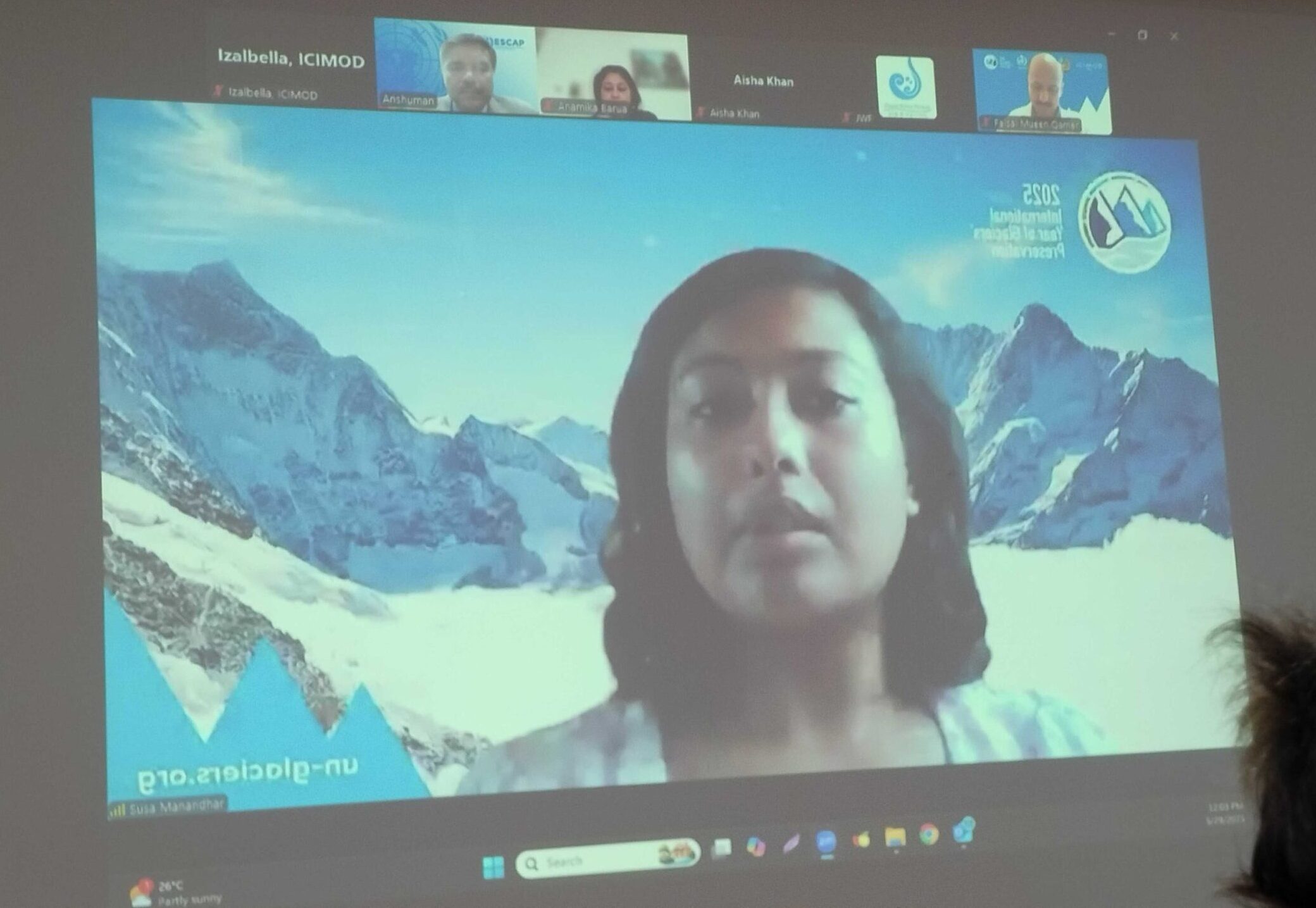The Nepal National Water and Weather Week (NNWWW) will mark its 10th anniversary by organizing a weeklong celebration from March 17- 23, 2018. From its inception in 2009, this national event has provided a platform for different organizations to collaborate and address the pressing issues in the sector of water and weather. Like every year, a stakeholders meeting was held on January 26, 2018 at the Water and Energy Commission Secretariat Hall (WECS), Singha Durbar, Kathmandu. The meeting was chaired by Dr. Ramesh Prasad Singh, the Secretary of WECS and facilitated by Mr. Madhav Belbase, the Joint Secretary of WECS. Mr. Belbase highlighted the theme of World Water Day 2018 “Nature for Water” by stating that this year the water issues would be approached by nature based solutions. Furthermore, the designated theme of World Meteorological Day 2018 “Weather Ready Climate Smart” was emphasized by Dr. Archana Shrestha, the Senior Divisional Meteorologist of Department of Hydrology and Meteorology (DHM). She pointed out that a smart line of action for farmers such as weekly weather forecast has been adopted which will result in a fruitful step towards agriculture. As the secretariat of the NNWWW for almost a decade, the Small Earth Nepal (SEN) has been successful in playing a crucial role for the enrichment of this event. Mr. Niranjan Bista, Senior Program Officer from SEN put forward a series of impactful activities among the stakeholders, which the NNWWW has achieved so far.
The primary purpose of the meeting was to provide a forum to propose the interest of different stakeholders working in the spheres of water and weather along with forming an organizing committee for the NNWWW, 2018. Some of the thematic areas recommended by the stakeholders were recovery and resilience, trans-boundary issues on water resources, water quality assessment of different sources of water in the Kathmandu valley, community based early warning system, hydrological extreme weather events, upstream-downstream linkages of river, documentary on hardships faced by mountain people, public involvement and transparency and participation of the educational institutes. The organizing committee was formed under chairmanship of WECS where the Small Earth Nepal will be working as a Secretariat like the previous years.
In addition, the floor was opened to translate the theme of this year’s respective themes in Nepali. The paraphrased theme of World Water Day 2018 Nature for Water was suggested as “पानीको लागि प्रकृति” and similarly, the relevant translation of the theme designated for World Meteorological Day Weather Ready Climate Smart was agreed upon “मौसम प्रति सचेत रहऔं, जलवायु अनुकूलन व्यवहार गरौं”.
Moreover, the National Academy of Science and Technology (NAST), National Trust for Nature Conservation (NTNC), Kathmandu Metropolitan City (KMC) and International Union for Conservation of Nature (IUCN) have stepped forward to collaborate with WECS to celebrate the NNWWW-2018. WECS will be conducting a symposium on World Water Day to share its research and findings with the stakeholders in collaboration and cooperation with Department of Soil Conservation and Watershed Management (DSCWM), DHM, and Society of Public Health Engineers in Nepal (SOPHEN), Society of Hydrologists and Meteorologists (SOHAM-Nepal). WECS has also been actively working on flood forecasting and Integrated Water Resource Management (IWRM) in Bagmati River Basin (BRB). Meanwhile, Dr. Salina Shrestha, representing Centre of Research for Environment, Energy and Water (CREEW), took this opportunity to talk about the 9th National Groundwater Symposium which will take place within the NNWWW-2018. To add, Water Aid is willing to organize a short interactive program relevant to the Sustainable Development Goal (SDG) 6 Clean Water and Sanitation which will make a contribution in policy formulation.
Finally, the meeting was concluded by Dr. Singh. He stressed on the statement “water is life” and nature-centric activities resulting in a cleaner and healthy urban centers. In summation, he stated that the exploration of water related issues by nature is a necessity in climate resilience practices.






